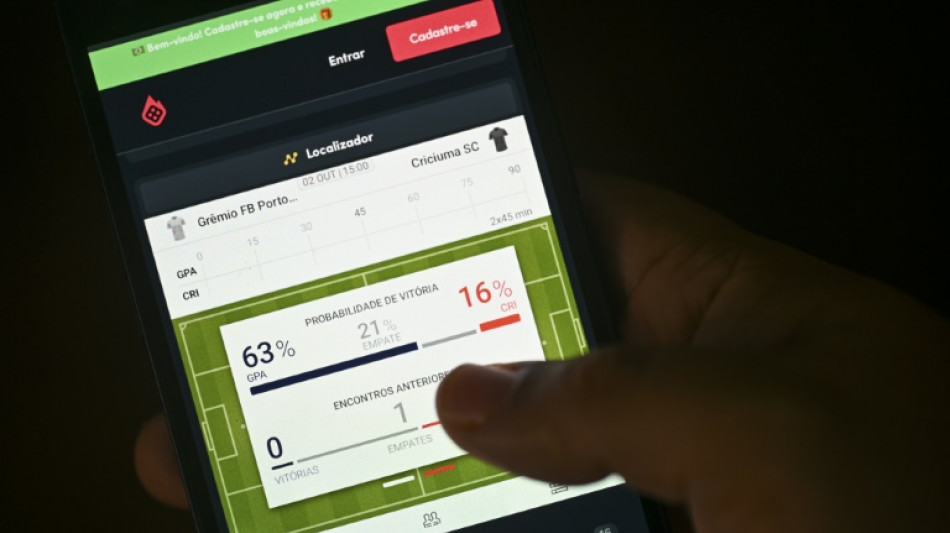
-
 Son of Norway princess suspected of three rapes
Son of Norway princess suspected of three rapes
-
Alive but weakened, Iran's Khamenei faces new challenges

-
 Heatwave across the Med sparks health and fire warnings
Heatwave across the Med sparks health and fire warnings
-
UAE name powerful team to support Pogacar in Tour de France

-
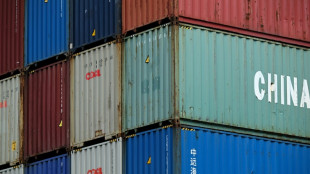 Stocks rise as US-China reach trade deal framework
Stocks rise as US-China reach trade deal framework
-
Alcaraz starts Wimbledon defence against Fognini
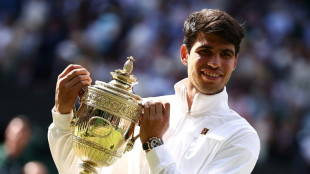
-
 Spain makes Booking.com scrap 4,000 tourist rental ads
Spain makes Booking.com scrap 4,000 tourist rental ads
-
One of Hong Kong's last opposition parties says it will disband
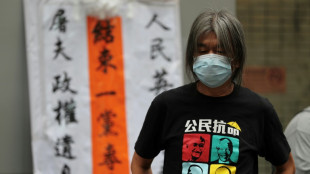
-
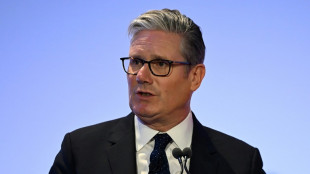 UK govt climbs down on welfare cuts in latest U-turn
UK govt climbs down on welfare cuts in latest U-turn
-
Kusal Mendis steers Sri Lanka to commanding lead over Bangladesh
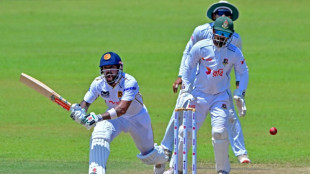
-
 Anderson teases Dior debut with Mbappe, Basquiat and Marie Antoinette
Anderson teases Dior debut with Mbappe, Basquiat and Marie Antoinette
-
Global tensions rattle COP30 build-up but 'failure not an option'
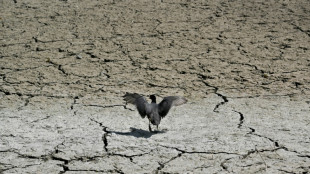
-
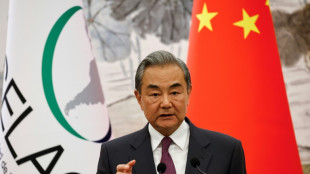 China's top diplomat to visit EU, Germany, France next week
China's top diplomat to visit EU, Germany, France next week
-
Manager Van Nistelrooy leaves relegated Leicester

-
 Eel-eating Japan opposes EU call for more protection
Eel-eating Japan opposes EU call for more protection
-
Messi's PSG reunion, Real Madrid face Juventus in Club World Cup last 16

-
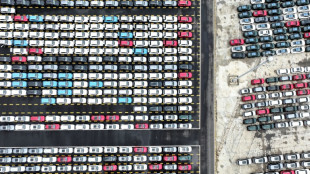 China confirms trade deal framework reached with United States
China confirms trade deal framework reached with United States
-
Dollar holds losses on rate cut bets, trade hope boosts stocks
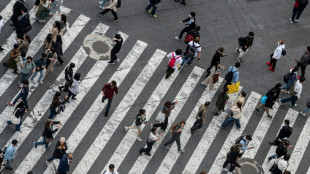
-
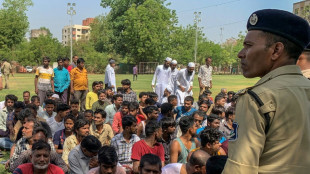 India accused of illegal deportations targeting Muslims
India accused of illegal deportations targeting Muslims
-
Australia and Lions yet to resolve tour sticking point

-
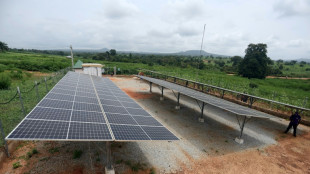 Green bonds offer hope, and risk, in Africa's climate fight
Green bonds offer hope, and risk, in Africa's climate fight
-
Game 'reloots' African artefacts from Western museums

-
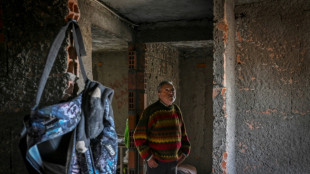 Renters struggle to survive in Portugal housing crisis
Renters struggle to survive in Portugal housing crisis
-
Western Japan sees earliest end to rainy season on record

-
 Ketamine 'epidemic' among UK youth raises alarm
Ketamine 'epidemic' among UK youth raises alarm
-
'Shocking' COP30 lodging costs heap pressure on Brazil

-
 India investigates 'unnatural' death of five tigers
India investigates 'unnatural' death of five tigers
-
Anderson teases Dior debut with Mbappe, Basquiet and Marie Antoinette

-
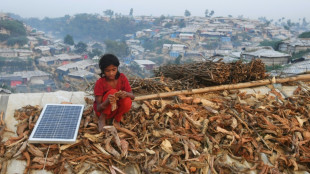 Bangladesh pushes solar to tackle energy woes
Bangladesh pushes solar to tackle energy woes
-
Wallabies veteran White relishing 'unreal' Lions opportunity

-
 Hong Kong's dragnet widens 5 years after national security law
Hong Kong's dragnet widens 5 years after national security law
-
Tibetans face up to uncertain future as Dalai Lama turns 90
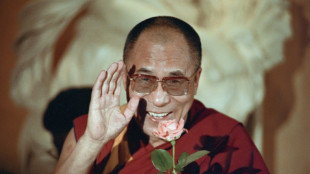
-
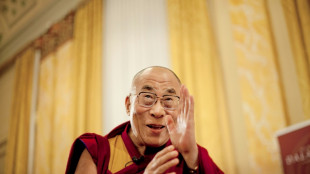 'Simple monk': the Dalai Lama, in his translator's words
'Simple monk': the Dalai Lama, in his translator's words
-
Man City crush Juventus, Real Madrid reach Club World Cup last 16

-
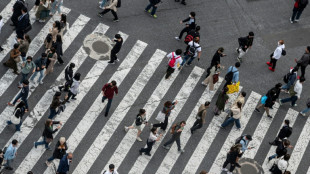 Stocks climb, dollar holds on trade hopes and rate bets
Stocks climb, dollar holds on trade hopes and rate bets
-
Bezos, Sanchez to say 'I do' in Venice

-
 Vinicius stars as Real Madrid ease into Club World Cup last 16
Vinicius stars as Real Madrid ease into Club World Cup last 16
-
New-look Wimbledon prepares for life without line judges
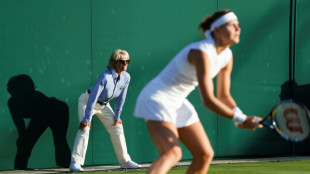
-
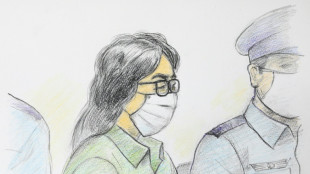 Japan executes 'Twitter killer' who murdered nine
Japan executes 'Twitter killer' who murdered nine
-
UN conference seeks foreign aid rally as Trump cuts bite

-
 Dying breed: Tunisian dog lovers push to save age-old desert hound
Dying breed: Tunisian dog lovers push to save age-old desert hound
-
Springboks launch 'really tough season' against Barbarians

-
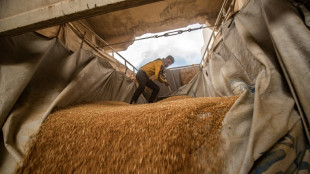 Syria's wheat war: drought fuels food crisis for 16 million
Syria's wheat war: drought fuels food crisis for 16 million
-
Ex-All Black Kaino's Toulouse not expecting 'walkover' in Top 14 final

-
 Rwanda, DRC to ink peace deal in US but questions remain
Rwanda, DRC to ink peace deal in US but questions remain
-
Combs defense team set to take the floor in trial's closing arguments

-
 Fraser-Pryce eases through in Jamaica trials farewell
Fraser-Pryce eases through in Jamaica trials farewell
-
US Treasury signals G7 deal excluding US firms from some taxes

-
 Combs created 'climate of fear' as head of criminal ring: prosecutors
Combs created 'climate of fear' as head of criminal ring: prosecutors
-
Chelsea's Fernandez flying ahead of Benfica reunion at Club World Cup


European watchdog takes aim at online gambling, gaming among youths
Online gambling and gaming can cause depression and other mental health issues in young people, which the Council of Europe rights watchdog is trying to counter with a new project encouraging good policy and awareness raising.
The 46-member bloc, which launched its project at the start of a two-day conference in Rome on Tuesday, is seeking to help countries tackle the problem as online gambling and gaming grow in popularity among young people.
"It is only a minority (of adolescents) who experience addiction-like symptoms," Orsolya Kiraly, a researcher at the Eotvos Lorand University's Institute of Psychology in Budapest, told the conference.
"But in these cases these lead to severe negative consequences and functional impairment," she said.
Excessive online gambling and gaming are particularly dangerous for children, whose brains and personalities are still developing, she said.
The dangers include mental and physical health problems ranging from family conflict and sleep disturbances to bad eating habits and poor physical hygiene, Kiraly said.
The Council of Europe's Pompidou Group, which coordinates anti-drug and addiction policy and is in charge of the new project, said in a 2024 report that gambling and gaming products were deliberately crafted to make the activities "as immersive and addictive as possible".
Detailed research on the topic is not yet widely available, but the World Health Organization has already identified disorders from online gambling and gaming as public health concerns.
- 'Conflicts of interest' -
Gambling disorders could affect 26.4 percent of adolescents who are gambling on online platforms, and 16.3 percent of those gambling using sports betting, Kiraly said, citing recent research.
More video games, meanwhile, are incorporating gambling-like features, including "loot boxes" -- items that can be bought within video games that contain other unknown objects.
Boys are more affected, while girls are more at risk of addiction-like disorders from social media, Kiraly said.
"There is a great need for more research in this area," she said.
"The industry has a lot of data but they don't share it or they share it only with researchers who have conflicts of interest."
The global gaming industry could exceed $300 billion in revenue by 2028, doubling since 2019, according to a 2024 report by the consulting group PwC.
Italy is one of the largest gambling markets in the world, with 148 billion euros ($125 billion) spent in 2023, up from 89 billion euros in 2012, said Elisa Benedetti from Italy's National Research Council.
- Adults 'desperate' -
The Council of Europe hopes to help states to fix a problem that most of its members do not even have strategies for yet.
Experts said one of the issues was the contrasting ways in which people of different ages deal with the stigma and the difficulties.
Simona Pichini, director of the addiction centre at Italy's National Health Institute (ISS), pointed out that the national Italian gambling hotline most often received calls from adults.
"When do they call? When they're desperate, when they arrive with no money, no house, outside the family. They call at the end of the problem," she said.
It was a marked contrast with young people.
"Not youngsters. They don't perceive the problem," she said.
K.AbuDahab--SF-PST
